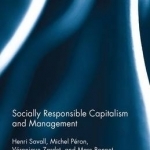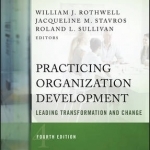
Hunting the Killer Idea
Book
Killer Ideas. They re out there. Wild, unpredictable and dangerous. So powerful they can stop a...
The Cell Language Theory: Connecting Mind and Matter: A Molecular Theory of Genomics, Transcriptomics, and Proteomics
Book
This book describes the first molecular theory of the genotype-phenotype coupling (or cell language)...

Socially Responsible Capitalism and Management
Veronique Zardet, Marc Bonnet, Michel Peron and Henri Savall
Book
In the current crisis context, capitalism is questioned by its detractors or defended by its...

The Manual of Below-Grade Waterproofing
Justin Henshell and Paul Buccellato
Book
The ever evolving technology of waterproofing presents challenges and risks for architects and...

Brother iPrint&Scan
Utilities and Photo & Video
App
Brother iPrint&Scan is a free app that enables you to print from and scan to your iOS device (iPhone...

Practicing Organization Development: Leading Transformation and Change
William J. Rothwell, Jacqueline M. Stavros, Jackie Stavros and Roland L. Sullivan
Book
Get on the cutting edge of organization development Practicing Organization Development: Leading...

Understanding Wine Chemistry
Andrew L. Waterhouse, Gavin L. Sacks and David W. Jeffery
Book
Wine chemistry inspires and challenges with its complexity, and while this is intriguing, it can...

Sex, Religion, Power and Politics
Podcast
Named one of the Top 13 Most Influential Women in Goddess Spirituality - tune in to find out why! ...

Beyond Mindfulness: The Direct Approach to Lasting Peace, Happiness, and Love
Book
Written by best-selling author, meditation expert, psychotherapist, and spiritual teacher Stephan...

